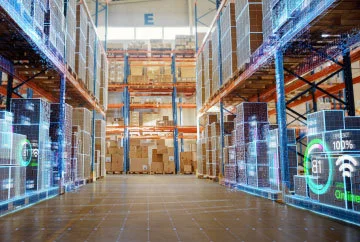The Generative AI in ERP Revolution
ERP systems have long been the backbone of many organizations, providing a comprehensive view of business operations, streamlining processes, and facilitating integration across various systems. However, traditional ERP systems are inherently reactive in nature, offering untapped potential for improvement.
GenAI represents a shift from specialized AI applications tailored for specific tasks to systems that are adaptive, versatile, and capable of intelligent decision-making. Imagine an ERP system that processes data and generates insights, learns, and anticipates optimal operational strategies, potentially outperforming seasoned industry experts.
Synergistic Enhancements
The fusion of GenAI with ERP promises a multitude of enhancements that not only boost efficiency but also revolutionize how businesses operate. Let's delve into these synergistic benefits:
- Predictive Maintenance
Machine Complexity: Discreet manufacturing involves many complex machines, each with unique parameters, functions, and wear-and-tear patterns, making mechanical breakdowns hard to predict.The GenAI Advantage: GenAI can continually analyze intricate machine behavior patterns and subtle shifts, thanks to its predictive algorithms.Impact: This significantly reduces unscheduled downtimes, enabling businesses to meet production targets while enhancing equipment longevity and productivity.
- Demand Forecasting
Modern Market Dynamics: Today's markets are characterized by volatility. Various factors, including geopolitical events and sudden shifts in consumer behavior, can trigger demand fluctuations.GenAI's Holistic Analysis: Generative AI's holistic analysis capabilities allow it to generate comprehensive demand forecasts by aggregating and analyzing data from diverse sources, including social media trends, global events, and historical sales data.Result: With these forecasts, manufacturers can optimize production cycles, manage inventory effectively, and adapt supply chain strategies, reducing overhead costs and sharpening their competitive edge.
- Resource Optimization
The Sustainability Imperative: In an era marked by environmental concerns and resource constraints, optimal resource utilization is not just a corporate necessity but a global obligation.GenAI's Recommendations: GenAI leverages historical consumption data, current usage rates, and predicted demand to recommend optimal resource allocation, from energy consumption to raw material procurement.Consequences: This leads to substantial cost savings and positions the company as a responsible and sustainable player in the international market.
Discreet Manufacturing: Unpacking the Synergy
Discreet manufacturing demands precision, scalability, and the ability to accommodate customized requests due to its unique operational characteristics. Let's explore how the synergy between Generative AI and ERP can address these challenges:
- Customization at Scale
The Challenge: Many discreet manufacturing items require complete customization or slight modifications to meet specific customer demands.GenAI's Proficiency: GenAI can automate operations, suggest design changes, and select the best materials, ensuring that each customized product meets precise specifications.Outcome: This seamless integration of mass production efficiency with bespoke manufacturing ensures clients receive custom solutions without extended lead times.
- Supply Chain Resilience
The Modern Reality: In today's globalized environment, a single disruption can reverberate through supply chains, disrupting operations worldwide.GenAI's Prediction Power: GenAI can forecast future supply chain bottlenecks or disruptions by analyzing vast datasets, including weather forecasts and political stability indices.Result: With this foresight, companies can adjust inventory levels, diversify supply sources, or pre-emptively reroute shipments to ensure uninterrupted operations.
- Quality Assurance
The Manufacturing Mandate: Identifying quality issues in real-time, especially with high production volumes, is a critical challenge.GenAI's Continuous Learning: Unlike traditional quality assurance systems with fixed parameters, Generative AI evolves continuously. It learns from every production cycle, detects subtle anomalies indicating quality deviations, and can even predict which batches or processes will most likely face quality issues.Consequences: Proactive quality assurance ensures that only top-quality products reach the market, significantly reducing recalls, warranty claims, and preserving the brand's reputation.



